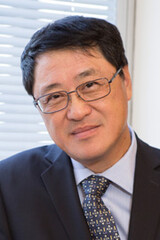Author: Prof. Lieping Chen, Yale Cancer Center, Yale University, New Haven, CT, USA
Enormous progress has been made in cancer immunotherapy over the past 20 years. However, the late 1990s, when we were starting our work on the PD-L1/PD-1 pathway, was a down time for immunotherapy in cancer research.
At that time, many of the clinical trials, such as those using cancer vaccines and T-cell therapies, were not encouraging and the prevailing view was that there was probably no future for this approach in treating cancer. The situation changed with the discovery of the key role of PD-L1/PD-1 in tumour progression. This proof that the immune response can be very powerful if it is manipulated in the right way heralded a renaissance for cancer immunotherapy that has continued to this day.
PD-1/PD-L1-targeted agents have contributed hugely to the survival of patients with solid tumours, such as lung, head and neck, and breast cancer and melanoma. These agents have gained favour in the clinic due not only to their efficacy but also to the fact that they are not hindered by the high incidence of toxicities associated with other immunotherapies, such as IL-2 and anti-CTLA-4 therapies. Another key element of their success is that they produce durable, long-term effects.
Despite the excellent activity of these agents, only a fraction of patients – around 25% – respond well to treatment and among these around 20% will develop recurrence. We need to understand why and how we can do better. Much current research is focussing on these challenges, particularly with regard to the use of combination therapies to improve response.
However, the biggest obstacle is that 75% of patients will never respond to PD-1/PD-L1-targeted therapy. This is seen across tumour types and represents a huge unmet need. The current weight of evidence suggests that a large proportion of patients not responding do not have PD-L1-expressing tumours. It is likely that the cancer is using a different pathway, or pathways, to evade the immune response. We need more research to identify what these pathways are and to find ways to target and disrupt them.
How can we progress further in the realm of immunotherapy? In the immediate wake of the discovery of PD-1/PD-L1 therapy, there was a frenzy of activity with cancer immunotherapy in the clinic. Much of this clinical activity was good, but there was also a considerable amount of investigation that was not based on a solid scientific rationale. It is important to recognise the importance of looking at basic immunology to guide such efforts in the clinic. Exploring these systems to identify key immune modulators is critical for future development of unique, focussed treatments that attack the tumour but, to a large extent, spare healthy tissue. A major advance has been the understanding of the important role the tumour microenvironment plays in treatment. We now know that an immune response can be mounted against tumours even in patients with advanced-stage cancer but that the effects can be halted by the tumour microenvironment. So now at least we have a clear idea of where to look for answers. To me, this rational, focussed approach is the future of cancer immunotherapy.
There are always obstacles in research, and one that we currently face in cancer immunotherapy is that our ideas are moving faster than the technology. For example, we are not yet able to monitor the immune response in real time, and this is impeding progress in the discovery of new and effective treatments to improve outcomes. Discovery needs time, but time is something many of our patients do not have. This is perhaps the biggest challenge of all.
Session details:
- Don’t miss the Keynote Lecture by Lieping Chen: ‘Present and future of cancer immunotherapy’, 17 October 2020, 13:45 – 14:15, Channel 1






